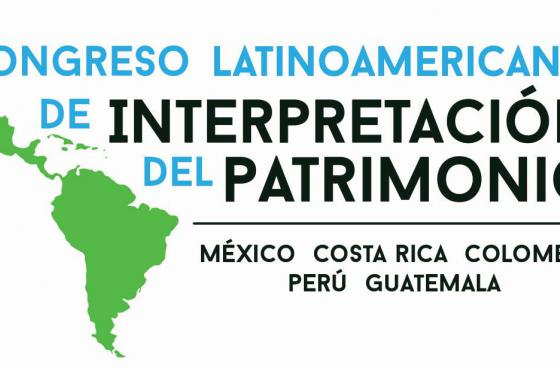Seven institutions in five countries are organizing the First Latin American Congress for Heritage Interpretation which will take place 23–25 October 2018. The Congress will be a virtual teleconference for which each country will provide one or two transmitting locations. Speakers will give live presentations at these locations which will be retransmitted simultaneously to all across the Congress’s Internet hub at the El Colegio de Michoacán in Morelia, Mexico. Each site will have a live audience that can interact with speakers while anyone in the world can follow the Congress from a web interface on their own devices. Inscription is mandatory, but free starting on 15 June.
The participating institutions include the principal co-organizers El Colegio de Michoacán (Mexico) and the PUP Global Heritage Consortium (global) as well as the Servicio Nacional de Aprendizaje (Colombia), Universidad de Costa Rica in Grecia and Paraíso, Centro Científico Tropical (Costa Rica), Universidad del Valle de Guatemala, Escuela Nacional de Conservación, Restauración y Museografía (Mexico), and the Universidad Científica del Sur (Peru).
While the National Association for Interpretation of the United States has organized three of its annual international conferences in Latin America in recent years in Mexico, Panama, and Puerto Rico, the Congress’s principal organizer Dr. Antonieta Jimenez from the Colegio de Michoacán, a postgraduate social science institution, says, “This is the first time that Latin America organizes a conference by Latin Americans for Latin Americans. Further, the event will motivate the region to organize itself to promote interpretation as a professional discipline and earn a chair at the global table with other associations in North America, Europe, Australia, and other countries.”
The Congress aims not only to organize interpretation in the region but also inform practitioners and academics who is currently doing what along three principal threads: Practical experiences, professionalization, and research and methodologies. It will accomplish this through a format that intersperses live speakers, a live interactive poster session from the Congress website, roundtable discussions, keynotes, and extended lunch breaks that will both accommodate varying lunch times in different countries as well as allow for countries to discuss the development of national interpretation associations in the hope of eventually aligning them in a Latin American interpretation association.
Those participants who attend the majority of the Congress at one or more of the transmitting locations will earn an official Congress certificate of participation.
The PUP Global Heritage Consortium, a non-profit international network that aspires to transform the global paradigm in natural and cultural heritage management, has among its objectives the professionalization of heritage interpretation in Latin America. Congress co-organizer and executive director Jon Kohl says, “The use of heritage interpretation as a heritage management tool that involves visitors in conservation represents another way to integrate a relatively new dimension into the management toolbox, which we consider another important step toward a more holistic approach to heritage management.” PUP has done most of its interpretation work in Latin America including the Spanish-speaking world’s only regular Spanish interpretation webinar series offered in association with America’s National Association for Interpretation. It also will co-publish the first Latin American textbook on heritage interpretation with Costa Rica’s National Distance Learning University (UNED) in 2019. This Congress, asserts Kohl, is another mechanism to widen understanding of the value of interpretation in heritage management.
Aside from Kohl, Dr. Jimenez (board of directors), Dr. Manuel Gandara of the Escuela Nacional para Conservation, Restauración y Museografía (technical service member), and Marisol Mayorga, doctoral student at Kansas State University (technical service member) are all PUP members and co-organizers of this event.

